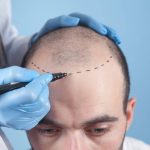Step 1: Understanding Obesity Surgery
Obesity Surgery, also known as bariatric surgery, is a life-enhancing medical procedure designed to help individuals achieve significant and sustained weight loss. It involves modifying the digestive system to reduce food intake and absorption, supporting long-term lifestyle changes. There are various types of Obesity Surgery, such as gastric bypass, sleeve gastrectomy, and adjustable gastric banding, each tailored to meet the specific needs of patients.
This transformative approach not only helps patients lose weight but also improves obesity-related health conditions such as type 2 diabetes, hypertension, and joint pain. Before moving forward, it’s essential to understand the nature of the surgery, its purpose, and how it supports a healthier future. This foundational knowledge empowers individuals to make confident decisions and begin their journey toward long-term well-being.
Step 2: Evaluating Eligibility and Preparing Mentally
The decision to undergo Obesity Surgery begins with evaluating eligibility. Candidates typically have a Body Mass Index (BMI) of 40 or more, or a BMI over 35 with obesity-related health conditions. However, beyond physical qualifications, readiness for Obesity Surgery also involves psychological preparation and a genuine commitment to lifestyle changes.
During this stage, patients often meet with a multidisciplinary team, including a surgeon, dietitian, and psychologist. These professionals assess health history, eating habits, motivation, and emotional well-being. Understanding the mental and emotional aspects of surgery ensures patients are well-prepared for the changes ahead. This comprehensive evaluation lays the groundwork for a successful, lifelong transformation supported by medical and emotional stability.
Step 3: Preoperative Tests and Nutritional Counseling
Once a patient is cleared for Obesity Surgery, the preoperative phase begins with a series of medical evaluations. These may include blood work, imaging studies, cardiology assessments, and sleep studies, depending on individual needs. The goal is to ensure that the patient is in optimal health before undergoing Obesity Surgery, minimizing risks and maximizing results.
Simultaneously, patients receive detailed nutritional counseling. They are introduced to new dietary guidelines, portion control, and vitamin supplementation requirements. Many clinics also initiate a preoperative diet to reduce liver size and enhance surgical outcomes. This educational phase equips patients with practical tools for success and strengthens their understanding of post-surgical responsibilities. The more informed and prepared a patient is, the smoother their journey will be.
Step 4: The Day of Surgery
The day of Obesity Surgery marks the beginning of a transformative new chapter. The procedure is typically performed laparoscopically, which means it involves small incisions and a faster recovery time. Patients are admitted to the hospital, prepped for surgery, and placed under general anesthesia. Depending on the specific type of Obesity Surgery, the procedure usually takes between one to three hours.
Throughout the day, a dedicated surgical team ensures patient safety and comfort. After the procedure, patients are moved to a recovery room for observation before being transferred to a hospital room. Most individuals begin walking with assistance within hours, which is encouraged to promote circulation and aid healing. The focus remains on careful monitoring, effective pain management, and gentle reintroduction to mobility.
Step 5: Immediate Postoperative Recovery
Recovery after Obesity Surgery begins in the hospital, where patients are closely observed for 1–3 days. During this time, the medical team ensures that vital signs are stable, pain is managed, and hydration is maintained. Patients begin with a clear liquid diet and gradually progress to full liquids under professional supervision. This gentle dietary introduction allows the digestive system to heal and adapt to changes from Obesity Surgery.
Movement is essential, and light walking is encouraged as soon as possible. This supports blood flow, lung function, and reduces the risk of complications. Before discharge, patients receive instructions on wound care, medications, dietary stages, and follow-up appointments. The immediate recovery stage sets the tone for long-term success and requires patients to be proactive, optimistic, and attentive to medical guidance.
Step 6: Adapting to New Dietary and Lifestyle Habits
Following Obesity Surgery, patients transition through specific dietary phases—liquids, purees, soft foods, and finally, solid meals. Eating becomes more structured, with small, frequent meals that are high in protein and low in sugar and fat. Adhering to these guidelines is essential for maximizing weight loss and preventing discomfort or nutritional issues after Obesity Surgery.
In addition to dietary changes, daily vitamin and mineral supplements are required to support overall health. Regular physical activity is also gradually incorporated into the routine, helping to build stamina, preserve lean muscle, and enhance weight loss. Building new habits takes time and dedication, but with continued support and determination, patients develop a healthier, more sustainable lifestyle.
Step 7: Long-Term Follow-Up and Success Maintenance
Long-term success after Obesity Surgery depends on regular follow-up care and active engagement in personal health. Patients attend scheduled check-ups with their bariatric team, undergo routine lab tests, and receive ongoing dietary and psychological support. These appointments track weight loss progress, ensure nutritional balance, and address any questions or concerns related to Obesity Surgery.
Support groups and counseling services are valuable tools for maintaining motivation and sharing experiences. As weight stabilizes, patients continue reinforcing healthy behaviors while enjoying improvements in mobility, energy, and overall wellness. The journey doesn’t end after surgery—it evolves into a lifelong commitment to health, supported by a network of professionals and peers. With consistency and dedication, the benefits of surgery are long-lasting and deeply rewarding.
Conclusion
Obesity Surgery is a powerful and transformative journey that guides patients through structured steps toward lasting health and well-being. From initial evaluations and education to surgical intervention and lifelong maintenance, each phase plays a vital role in achieving success. This step-by-step approach ensures patients are physically, emotionally, and mentally prepared for the changes ahead.
By committing to every stage—from preparation to post-operative care—individuals experience not only significant weight loss but also improvements in quality of life, self-confidence, and overall vitality. With a supportive care team and a proactive attitude, Obesity Surgery becomes more than a procedure; it becomes a pathway to a healthier, more fulfilling life. Through this comprehensive process, lasting transformation is not only possible—it’s within reach.
Frequently Asked Questions
How long does the surgery take?
Most procedures take 1–3 hours, depending on the method used.
Will I be awake during obesity surgery?
No, general anesthesia is used to ensure comfort throughout the procedure.
Is the surgery performed laparoscopically?
Yes, most types of obesity surgery are done with minimally invasive techniques.
What kind of diet will I follow after surgery?
You’ll start with liquids, then gradually move to pureed, soft, and solid foods.
When can I go back to work?
Most patients return to work within 2–4 weeks, depending on the procedure and job type.
Will I need to take vitamins after surgery?
Yes, daily supplements are required to prevent nutritional deficiencies.
How soon can I start exercising?
Light activity like walking can start within days; more intense exercise follows after recovery.
Is weight loss guaranteed?
Most patients experience significant weight loss, supported by proper diet and lifestyle.
Do I need ongoing medical check-ups?
Yes, regular follow-ups are essential for tracking progress and managing nutrition.
Can I eat normally again?
Yes, but in smaller portions with healthy food choices to support long-term success.












